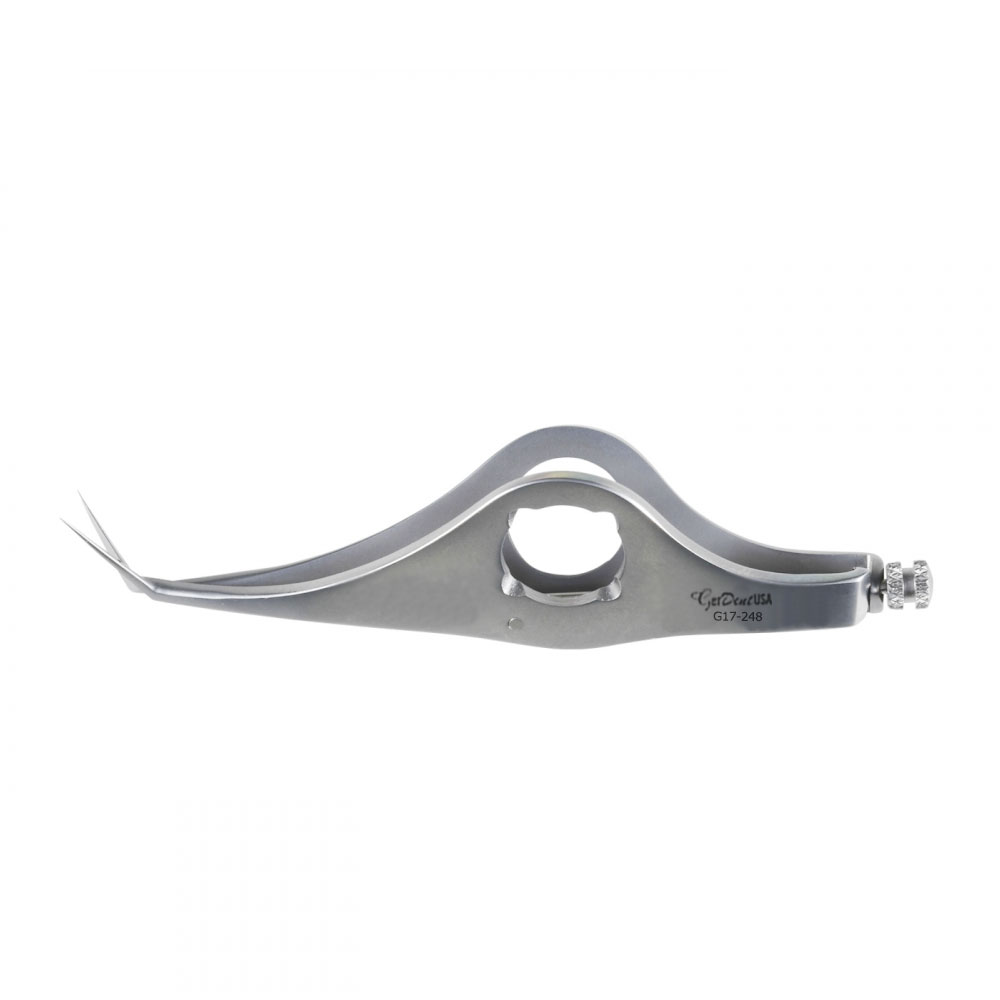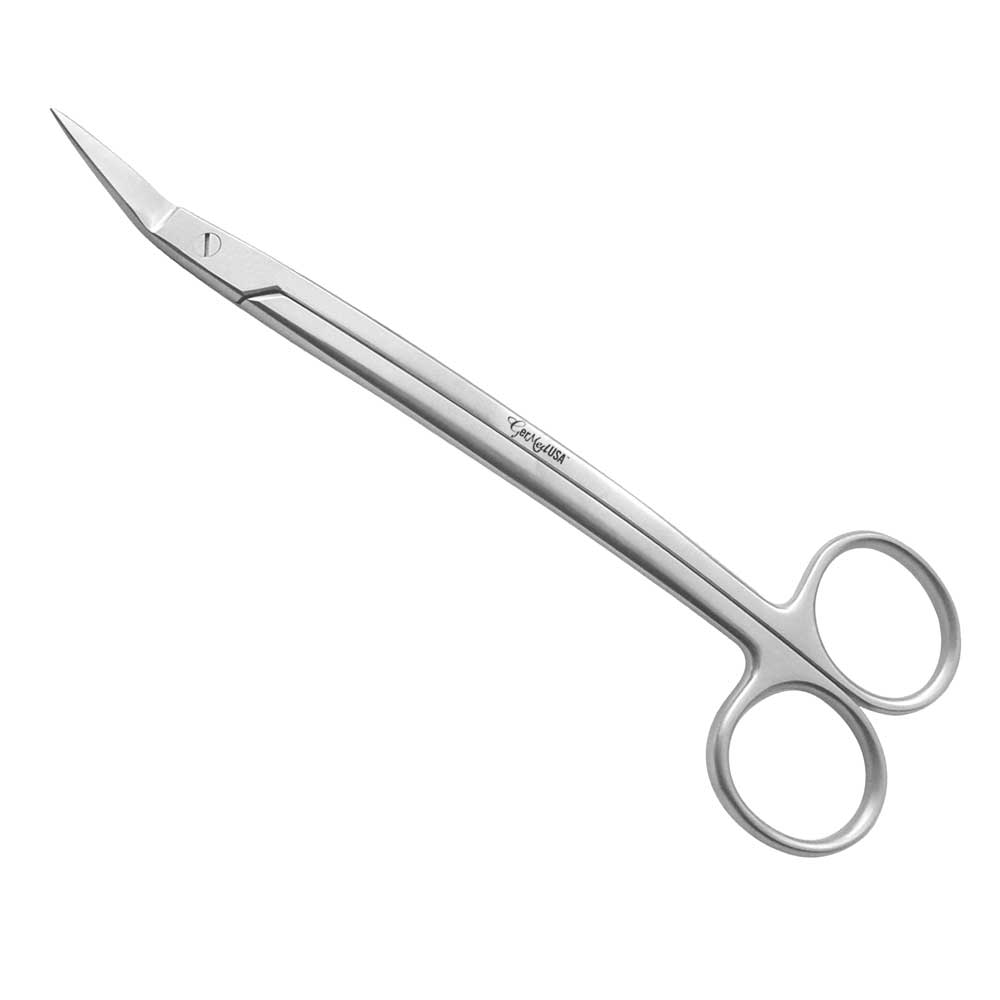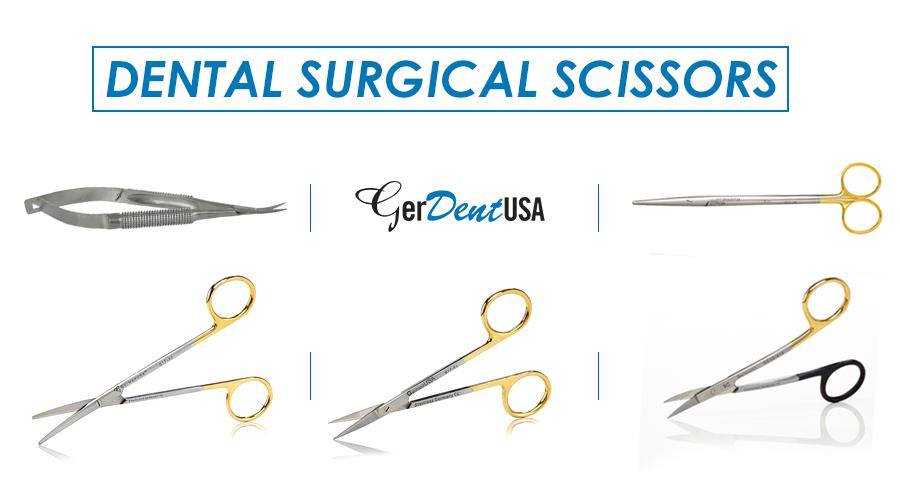Numerous dental surgical instruments come into use daily at the clinics. All of them have specialized functions that enable the surgeon to perform his procedure effectively. Oral surgeries are complex, and the procedures need a myriad of instruments to be carried out efficiently and effectively. Right instruments should hence come in use for the right purposes. Surgical instruments have different functions, such as incising the tissue, keeping the incision open, and stitching up the wound. Hence good quality instruments are a significant determinant of the surgical procedure running smooth and quick.
A surgical Scissor is an instrument that comes in use for cutting tissue and suturing material; other than that, it also comes in use for dissecting soft tissues. The scissors need to be sharp and smooth for efficient cutting. Other than that, they are available in different designs and types for facilitating the operator. Some are long, some are short, and others have a different grip.
There are Four Different Types of Scissors:
- Utility
- Suture scissors
- Surgical scissors
- Dissecting scissors
They can be further classified according to their curvature, use, and tip qualities.
Types According to Curvature:
- Straight
- Angled
- Curved
Scissor Types According to use:
- Dressing scissors
- Stitch removal scissors
- Tissue scissors
Types According to the tip:
- Sharp
- Blunt
Suturing scissors are a type of scissors that remove sutures. Suturing scissors are also known as utility scissors. The operating scissors are surgical scissors that cut the soft tissues, and their blades are available in different sizes. Dissecting scissors, on the other hand, separates and differentiates tissues.
Some surgical scissors involve Barraquer Gum scissors, Castroveijo scissors, Crown scissors, Dean Scissors, Goldmanfox scissors, and Iris Gum scissors.

The Metzenbaum scissors are slim, general-purpose light application scissors that come in use to cut through the delicate fascia and fine tissue dissection. The Metzenbaum scissors also come in use for delicate and fine tissue dissection. Their blades are blunt and curved. Shanks are longer than the blades, and hence the operator experiences tactile sensation. The surgeon can feel if the tissue dissected is hard or soft. Metzenbaum scissors should not be used for cutting sutures and other rough materials like meshes or sponges.
Other scissors, like suture scissors, easily come into use to cut rough material like sponges or mesh. Suturing Scissors do not have a ratcheted finger lock design. This is to aid in efficient suture cutting.
The Goldman fox scissors have serrated edges that make them ideal for Gum and suture cutting. The Iris Gum scissors are for excellent tissue dissection purposes in dental surgeries.
The Barraquer scissors have small delicate jaws that come in use for fine tissue dissection. The Barraquer has a rounded handle that aids in rotation with fingertips and allows good control in delicate areas.
Scissors with Tungsten Carbide Inserts:
Tungsten carbide inserts are sharper than regular steel. Tungsten carbide is resilient and cuts through tissues very efficiently. Due to their resilient nature, the instruments stay sharp for an extended period of time, and also, there is a reduced need for resharpening them.
All tungsten carbide instruments have gold plated handles for easy identification; these instruments have excellent cutting edges extremely durable.
Stainless steel properties for Dental Surgical Equipment: Stainless steel is a durable material. It is challenging and resilient and hence is used in the manufacturing of Dental surgical equipment. Another property of stainless steel is that it has an excellent strength to weight ratio.
It is very lightweight and possesses good strength. Stainless steel also has good edge retention, and hence it is a good choice for manufacturing cutting and dissecting instruments.
Other than that, stainless steel is highly corrosion resistant and so is reusable after sterilization. Also, stainless steel is easy to maintain and clean. Sterilization of stainless steel instruments is easy. Other than that, Instruments are reusable and durable.

Instrument Maintenance:
Instrument maintenance is essential to ensure that they are in their best condition. Dental surgical instruments tend to get dull over time. They require a time-to-time inspection to ensure that they are fit for purpose. Hence inspecting instruments routinely and before a surgical procedure is very important to ensure that they are well suited for use. Overuse of instruments should be avoided, and they should be keenly inspected for signs of dulling or locking system failure. Overuse compromises the efficiency of instruments, and in turn, compromises a smooth running surgical procedure. Hence, instrument maintenance is necessary for an effective surgical procedure
We also offer customization of instruments. Many practicing doctors find traditional instruments hard to work with. Hence, we offer customization for doctors to come up with innovative designs that may benefit the healthcare industry today and in the future. Our products speak for themselves and our years of reputation in the sector has made us the best out there. Our mission is to serve the healthcare sector with the best quality products that are matchless, efficient, versatile, and durable.

